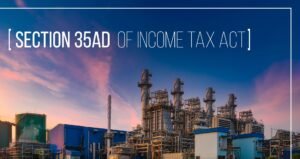In the constant fight against tax evasion, the Indian government introduced Section 79A of the Income Tax Act through the Finance Act, 2022. This significant amendment, effective from April 1, 2022, disallows the set-off of losses and unabsorbed depreciation against undisclosed income uncovered during tax enforcement actions such as searches, requisitions, or surveys. The provision is a major step forward in ensuring that undisclosed income detected through these actions is fully taxed without being offset by other deductions, losses, or unclaimed depreciation.
This blog post provides a comprehensive guide to understanding Section 79A, its key provisions, the rationale for its introduction, and how it applies in practice.
What Is Section 79A of the Income Tax Act?

Section 79A prohibits the setting off of any loss, whether brought forward or otherwise, or unabsorbed depreciation (under Section 32(2)), against undisclosed income found during a search, requisition, or survey. This provision ensures that tax authorities can fully assess and tax undisclosed income without any reduction due to existing or carried-forward losses or depreciation.
Key Provisions of Section 79A:
- No Set-Off Against Undisclosed Income:
- If undisclosed income is discovered during a search (Section 132), requisition (Section 132A), or survey (Section 133A) (excluding sub-section (2A)), no losses or unabsorbed depreciation can be set off against it. The entire undisclosed income is subject to taxation.
- Definition of Undisclosed Income:
- Undisclosed income refers to:
- Money, bullion, jewellery, or valuable items found during a search, requisition, or survey that were not recorded in the books of account before the search.
- Any income related to transactions or expenses that were not disclosed to the tax authorities prior to the search or requisition.
- False entries in the books of account regarding expenses that would not have been uncovered had the search or survey not occurred.
- Undisclosed income refers to:
- Overriding Nature of Section 79A:
- The section overrides all other provisions of the Income Tax Act, meaning it applies regardless of any other sections that might allow for the set-off of losses or depreciation under normal circumstances.
Why Was Section 79A Introduced?
Prior to the introduction of Section 79A, there was no provision in the Income Tax Act to specifically disallow the set-off of losses or unabsorbed depreciation against undisclosed income discovered through searches or surveys. This allowed many assessees to reduce their tax liability by adjusting their losses or depreciation against unreported income, thus significantly lowering the tax payable.
Pre-Section 79A Scenario:
- In cases like CIT v. Chensing Ventures (2007) and CIT v. Shilpa Dyeing & Printing Mills (P.) Ltd. (2013), courts allowed the set-off of losses and depreciation against undisclosed income. This loophole resulted in significant reduction in tax liability on unreported income, which was unfair to the exchequer.
- Moreover, the absence of a distinction between undisclosed income detected through searches or surveys and income assessed during regular scrutiny assessments created an inconsistency in how such income was taxed.
The Impact of Section 79A
The introduction of Section 79A ensures that tax is paid on the full extent of undisclosed income detected during searches, requisitions, or surveys. By disallowing the adjustment of losses and unabsorbed depreciation, the provision ensures that tax authorities can recover legitimate taxes on unaccounted wealth and income, thereby increasing tax compliance and discouraging evasion.
Example:
Consider an assessee whose undisclosed income of ₹50 lakhs is uncovered during a search. Prior to Section 79A, the assessee could offset this income by claiming brought-forward losses or depreciation, reducing the taxable amount to as low as zero in some cases. With Section 79A, this option is no longer available, and the entire ₹50 lakhs will be subject to taxation.
This stringent measure not only ensures that the government recovers the full tax but also acts as a deterrent against tax evasion.
Applicability of Section 79A
Section 79A applies to any search, requisition, or survey initiated on or after April 1, 2022. It is applicable to undisclosed income detected during the year in which these actions occur, affecting the income tax returns for that year. The provision applies to both current-year losses and brought-forward losses, including unabsorbed depreciation from previous years.
Important Points to Consider:
- The provision applies only to undisclosed income that is discovered during a search, requisition, or survey.
- Regular income that is disclosed and accounted for in the books of accounts can still benefit from the set-off of losses or depreciation under other sections of the Income Tax Act.
FAQs on Section 79A of the Income Tax Act
Q1. What is the main purpose of Section 79A?
The primary purpose of Section 79A is to ensure that undisclosed income detected during tax enforcement operations is fully taxed without being reduced by any set-off of losses or unabsorbed depreciation.
Q2. What is considered “undisclosed income”?
Undisclosed income refers to money, bullion, jewellery, valuable items, or false entries related to expenses that were not recorded in the books of accounts or disclosed to tax authorities before a search, requisition, or survey.
Q3. Can I set off business losses against undisclosed income found during a search?
No, Section 79A prohibits the set-off of any losses, whether current or brought forward, or unabsorbed depreciation against undisclosed income discovered through searches, requisitions, or surveys.
Q4. Does Section 79A apply to all types of income?
No, it applies specifically to undisclosed income found during searches, requisitions, or surveys. Income that is properly accounted for in the books of accounts can still benefit from loss set-offs under other provisions of the Income Tax Act.
Q5. When did Section 79A come into effect?
Section 79A came into effect on April 1, 2022, and applies to assessment years starting from 2022-23 onward.
Conclusion
Section 79A of the Income Tax Act marks a significant step in curbing tax evasion by ensuring that undisclosed income detected during searches, requisitions, or surveys is fully taxed. The disallowance of set-offs against such income ensures that the tax system remains fair and efficient, preventing taxpayers from reducing their liabilities through adjustments. This provision also acts as a powerful deterrent against non-compliance, encouraging taxpayers to maintain accurate and transparent records of their income and assets.
For more insights and detailed guides on the latest amendments to the Income Tax Act, visit SmartTaxSaver.com. Stay compliant, stay informed!



